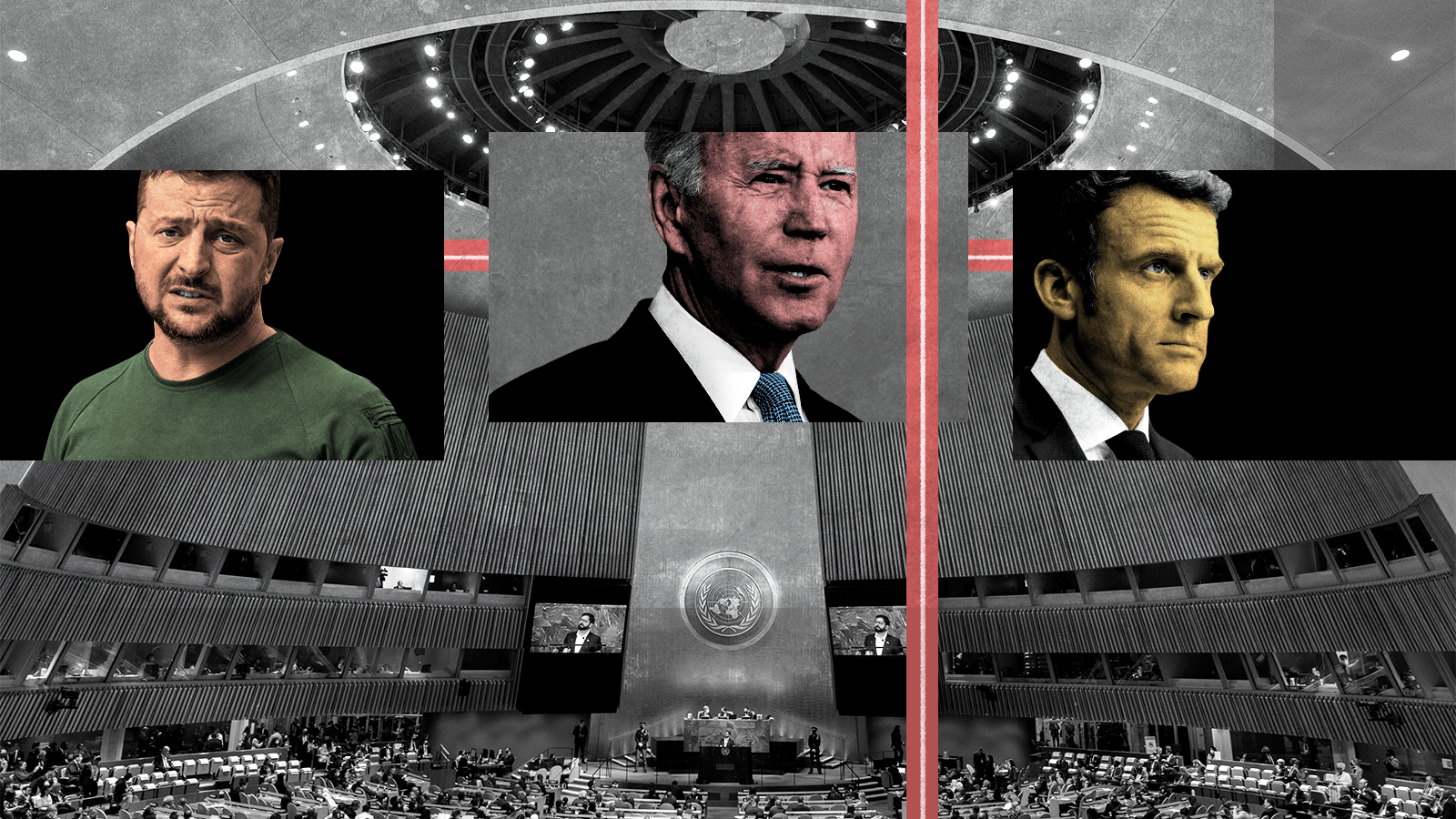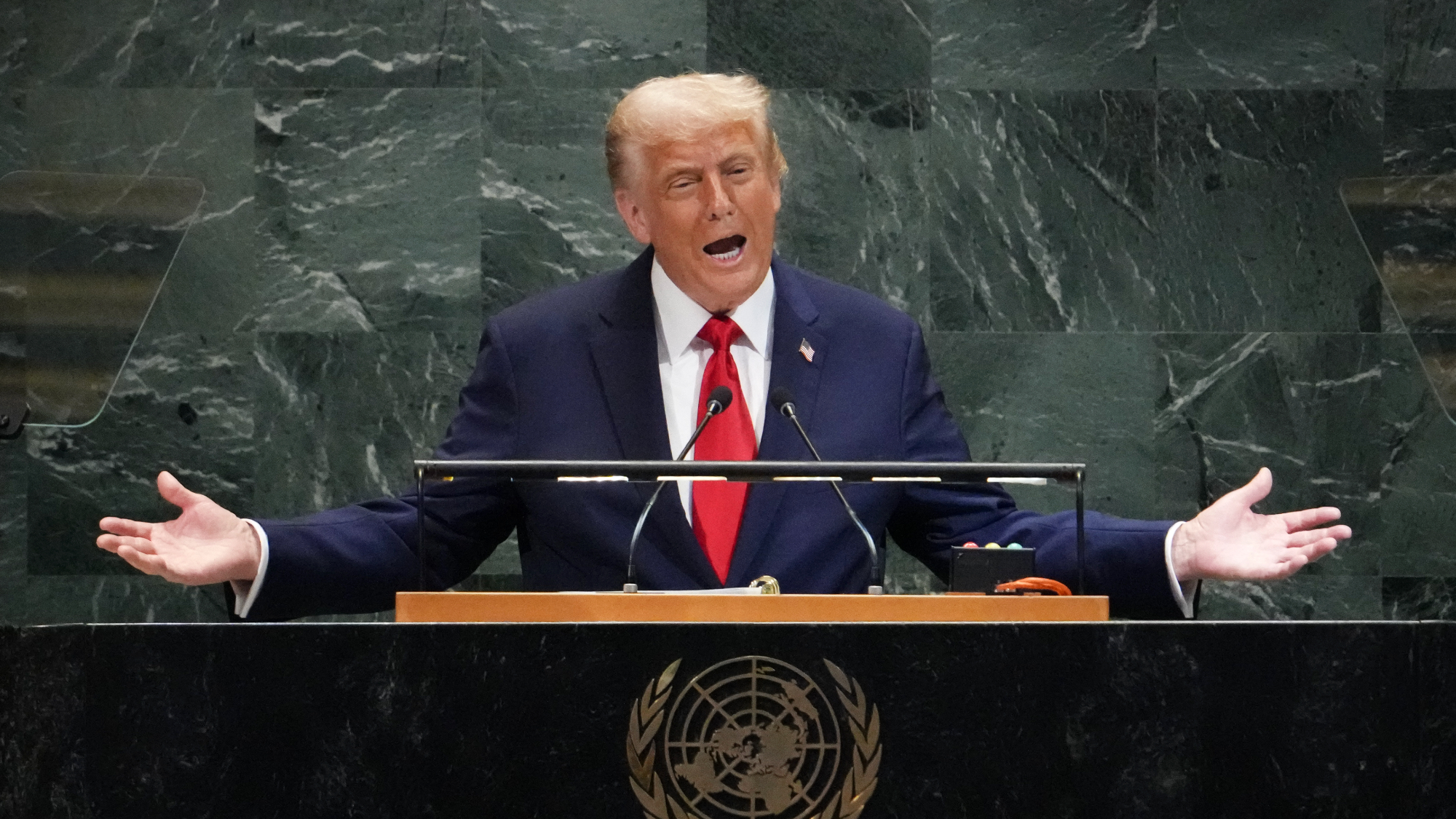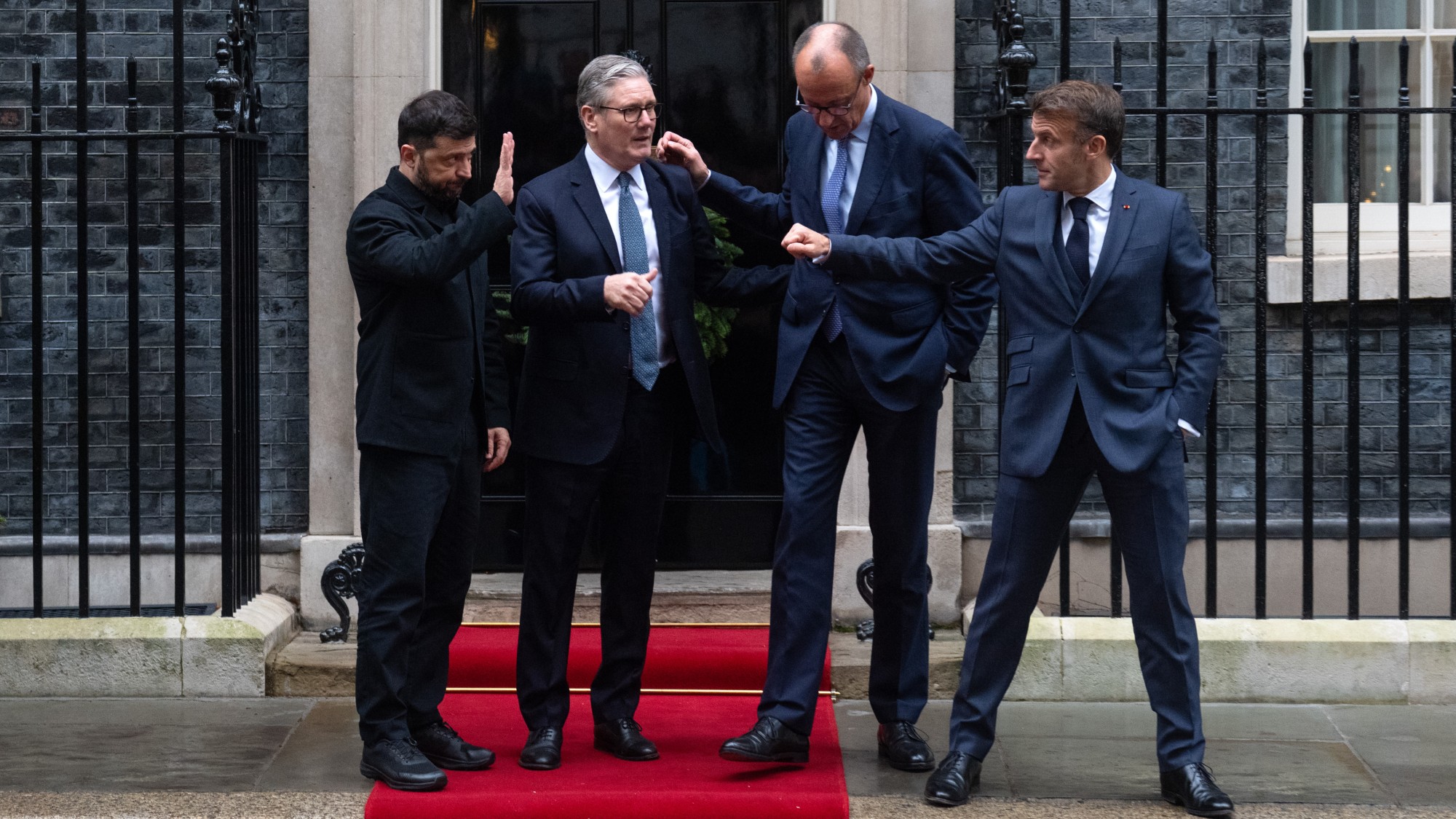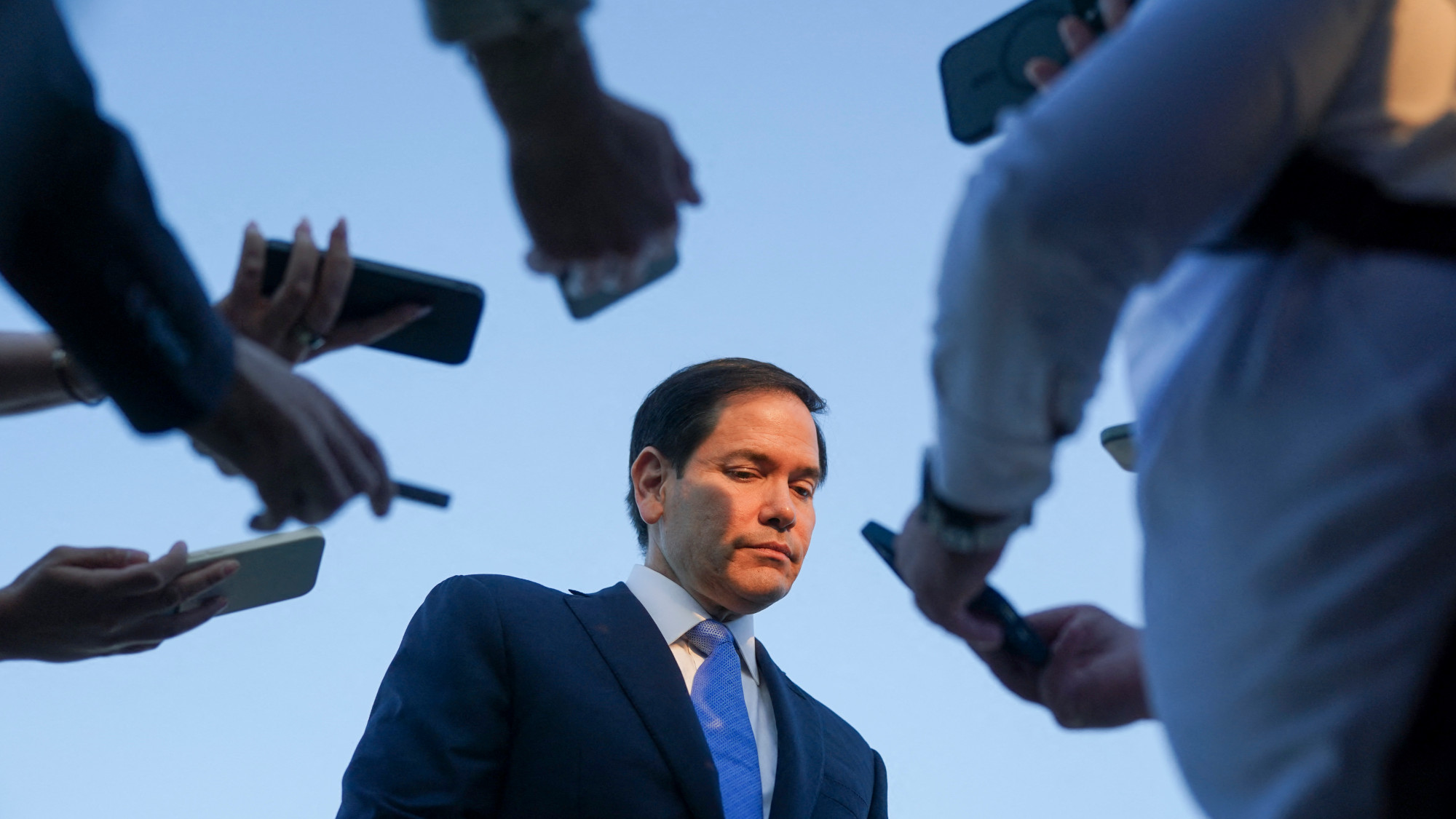What happened at the 77th UN General Assembly?
'We are gridlocked in colossal global dysfunction'


A free daily email with the biggest news stories of the day – and the best features from TheWeek.com
You are now subscribed
Your newsletter sign-up was successful
The 77th annual U.N. General Assembly concluded last week. Here are all the important updates you might have missed:
What state of the world did the U.N. walk into?
This year's U.N. General Assembly was the first in three years to convene in person due to the pandemic. Unfortunately, the world leaders arrived at the summit with plenty of pressing global issues on their minds — the two main ones being the climate crisis and the war on Ukraine. U.N. Secretary-General António Guterres said to the assembly, "we are gridlocked in colossal global dysfunction."
Just a day into the Assembly, Russian President Vladimir Putin announced that he was mobilizing more military personnel in the war, leading to condemnation from many countries, The New York Times reported. The Kremlin's actions underlined that the war continues to escalate, which has in turn increased inflation and food insecurity across the world. Europe, in particular, has been facing a detrimental energy crisis due to the war on Ukraine. At the same time, greenhouse gas emissions continue to go up, with the G20 being responsible for 75 percent of emissions. Guterres remarked in his opening statement to the assembly that emissions need to be reduced 45 percent by 2030 in order to have a chance at being net zero by 2050, reported CNN.
The Week
Escape your echo chamber. Get the facts behind the news, plus analysis from multiple perspectives.

Sign up for The Week's Free Newsletters
From our morning news briefing to a weekly Good News Newsletter, get the best of The Week delivered directly to your inbox.
From our morning news briefing to a weekly Good News Newsletter, get the best of The Week delivered directly to your inbox.
While these were the main issues, another conflict brewed. Just prior to the start of the summit, 22-year-old Mahsa Amini was killed in Iran, sparking protests all over the country and the world. Iranian President Ebrahim Raisi was in attendance at the General Assembly while protests were ongoing.
What were some notable moments?
With many issues looming, the General Assembly had a number of interesting and pivotal moments:
- A Brazilian call-out
The first day of the Assembly saw groups of environmental activists gather outside the U.N. headquarters in New York in anticipation of Brazilian President Jair Bolsonaro's speech, the first of the summit. Bolsonaro went on to highlight the achievements of Brazil under his leadership, including public health, sustainable development, and economic growth, likely an attempt to win the favor of the Brazilian people ahead of his re-election attempt in October. The problem lies in Bolsonaro's claim that about 80 percent of the Amazon rainforest remains untouched; however, evidence shows that deforestation skyrocketed under the Bolsonaro regime, inciting protestors, CNN reported.
- A death and a debut
British Prime Minister Liz Truss made her debut on the U.N. stage just two weeks after her appointment and only a few days after the queen's death. Truss called out Putin's actions in Ukraine, calling his escalation of forces a desperate attempt "to justify his catastrophic failures." She also talked about the late Queen Elizabeth's vision, stating that "it was vital not only to have strong ideals but also to have the political will to deliver on them." Truss continued to double down on Britain's support for Ukraine, despite the energy crisis and cost-of-living increase caused by lack of access to Russian exports, The Associated Press reported.
A free daily email with the biggest news stories of the day – and the best features from TheWeek.com
- Human rights and wrongs
Activists once again made an appearance at the U.N., but this time in protest of President Raisi. Despite protests all throughout Iran, the president claimed that the nation is a model for justice and human rights, the Times said. In his speech, he made no mention of the protests. Raisi instead criticized the U.S. for the wars its waged in the Middle East, claiming the White House keeps "equivocating militarism with security." He also wanted confirmation that the U.S. would not exit the nuclear deal as it did under former President Donald Trump.
The Iranian president also famously canceled an interview with CNN's chief international anchor, Christiane Amanpour, for refusing to wear a hijab as requested. Amanpour had interviewed previous Iranian presidents, none of whom had set such a requirement.
- Biden weighs in
President Joe Biden called out Russia when it was his turn to take to the U.N. stage. Biden remarked that Putin's actions "shamelessly violated the core tenets of the United Nations charter," and vocalized America's support for Ukraine. He also announced that the U.S. was putting $3 billion toward tackling food insecurity, largely worsened by Russia's attacks and climate change, NPR reported. He called it "the human cost of climate change."
Along with Russia, Biden singled out Iran for its human rights violations. He stated that the U.S. "will not allow Iran to acquire a nuclear weapon," in response to the Iranian president's remarks on the nuclear deal.
- A looming presence
Ukrainian President Volodymyr Zelensky joined the U.N. stage via video to give a strong speech, highlighting Russia's actions. In his remarks, Zelensky called for punishment, stating that a crime had been committed against Ukraine. He further explained that Russia should be the one to pay for the war as punishment. Zelensky stated, "We must protect life. The world must protect life," and he urged the U.N. to take the appropriate actions in ensuring that Russia faces repercussions.
What comes next?
In the midst of all the action, much of it revolving around Russia's invasion of Ukraine, there were steps taken to address other issues. A group of world leaders met to discuss climate change. However, Biden wasn't present in the meeting, despite touting the United State's strong actions against climate change in his speech, the Times reported. The meetings acted as a forum to discuss climate policy among world leaders, many of who agree that the crisis is a pressing issue.
President Biden also met with Truss to discuss reducing reliance on Russian energy sources. Truss also agreed to keep up military support for Ukraine despite the struggles.
Regarding the war, India and China — both of which have kept relatively neutral views on Russia's actions — may be swaying in their resolve, The Washington Post reports. Despite abstaining from taking a stand during the General Assembly, India has made some stronger statements, suggesting a push toward the west.
However, issues still remain largely unanswered, with Guterres saying it best: "The international community is not ready or willing to tackle the big dramatic challenges of our age."
Devika Rao has worked as a staff writer at The Week since 2022, covering science, the environment, climate and business. She previously worked as a policy associate for a nonprofit organization advocating for environmental action from a business perspective.
-
 The environmental cost of GLP-1s
The environmental cost of GLP-1sThe explainer Producing the drugs is a dirty process
-
 Greenland’s capital becomes ground zero for the country’s diplomatic straits
Greenland’s capital becomes ground zero for the country’s diplomatic straitsIN THE SPOTLIGHT A flurry of new consular activity in Nuuk shows how important Greenland has become to Europeans’ anxiety about American imperialism
-
 ‘This is something that happens all too often’
‘This is something that happens all too often’Instant Opinion Opinion, comment and editorials of the day
-
 Trump’s ‘Board of Peace’ comes into confounding focus
Trump’s ‘Board of Peace’ comes into confounding focusIn the Spotlight What began as a plan to redevelop the Gaza Strip is quickly emerging as a new lever of global power for a president intent on upending the standing world order
-
 Trump pulls US from key climate pact, other bodies
Trump pulls US from key climate pact, other bodiesSpeed Read The White House removed dozens of organizations from US participation
-
 The billionaires’ wealth tax: a catastrophe for California?
The billionaires’ wealth tax: a catastrophe for California?Talking Point Peter Thiel and Larry Page preparing to change state residency
-
 Trump considers giving Ukraine a security guarantee
Trump considers giving Ukraine a security guaranteeTalking Points Zelenskyy says it is a requirement for peace. Will Putin go along?
-
 Vance’s ‘next move will reveal whether the conservative movement can move past Trump’
Vance’s ‘next move will reveal whether the conservative movement can move past Trump’Instant Opinion Opinion, comment and editorials of the day
-
 Bari Weiss’ ‘60 Minutes’ scandal is about more than one report
Bari Weiss’ ‘60 Minutes’ scandal is about more than one reportIN THE SPOTLIGHT By blocking an approved segment on a controversial prison holding US deportees in El Salvador, the editor-in-chief of CBS News has become the main story
-
 Will there be peace before Christmas in Ukraine?
Will there be peace before Christmas in Ukraine?Today's Big Question Discussions over the weekend could see a unified set of proposals from EU, UK and US to present to Moscow
-
 Ukraine and Rubio rewrite Russia’s peace plan
Ukraine and Rubio rewrite Russia’s peace planFeature The only explanation for this confusing series of events is that ‘rival factions’ within the White House fought over the peace plan ‘and made a mess of it’
